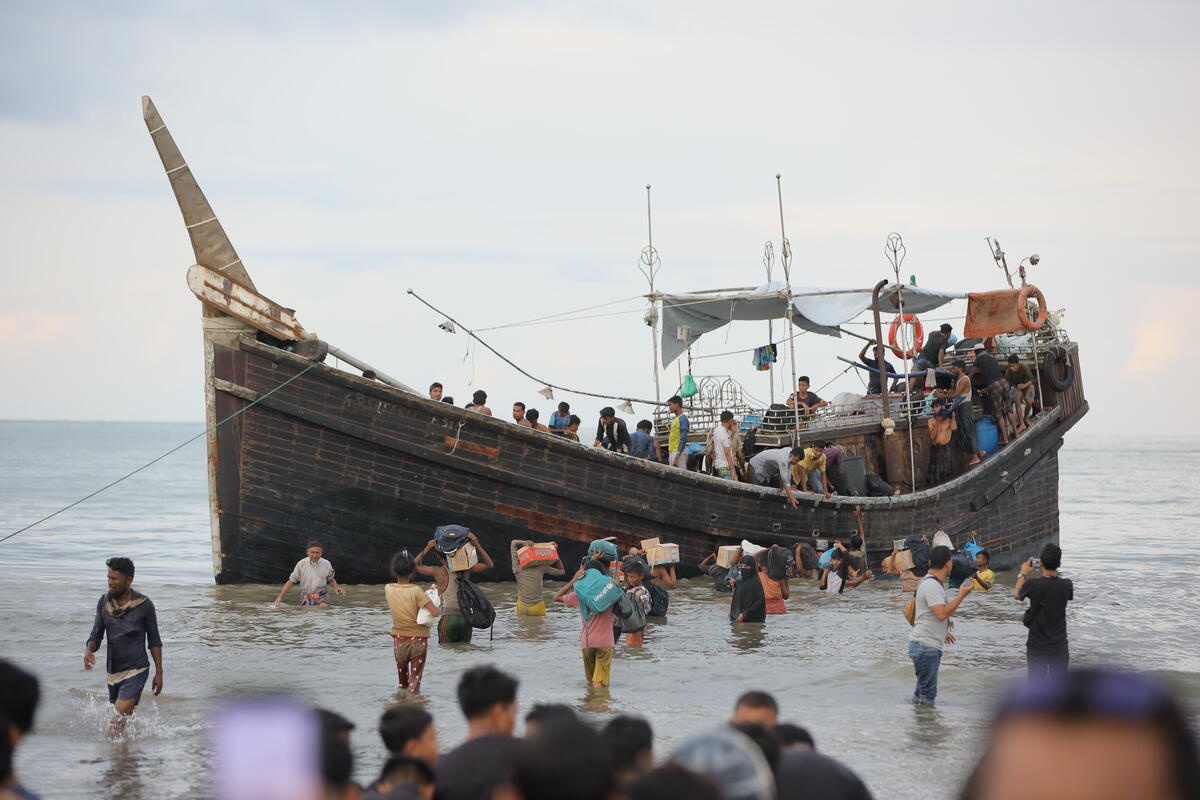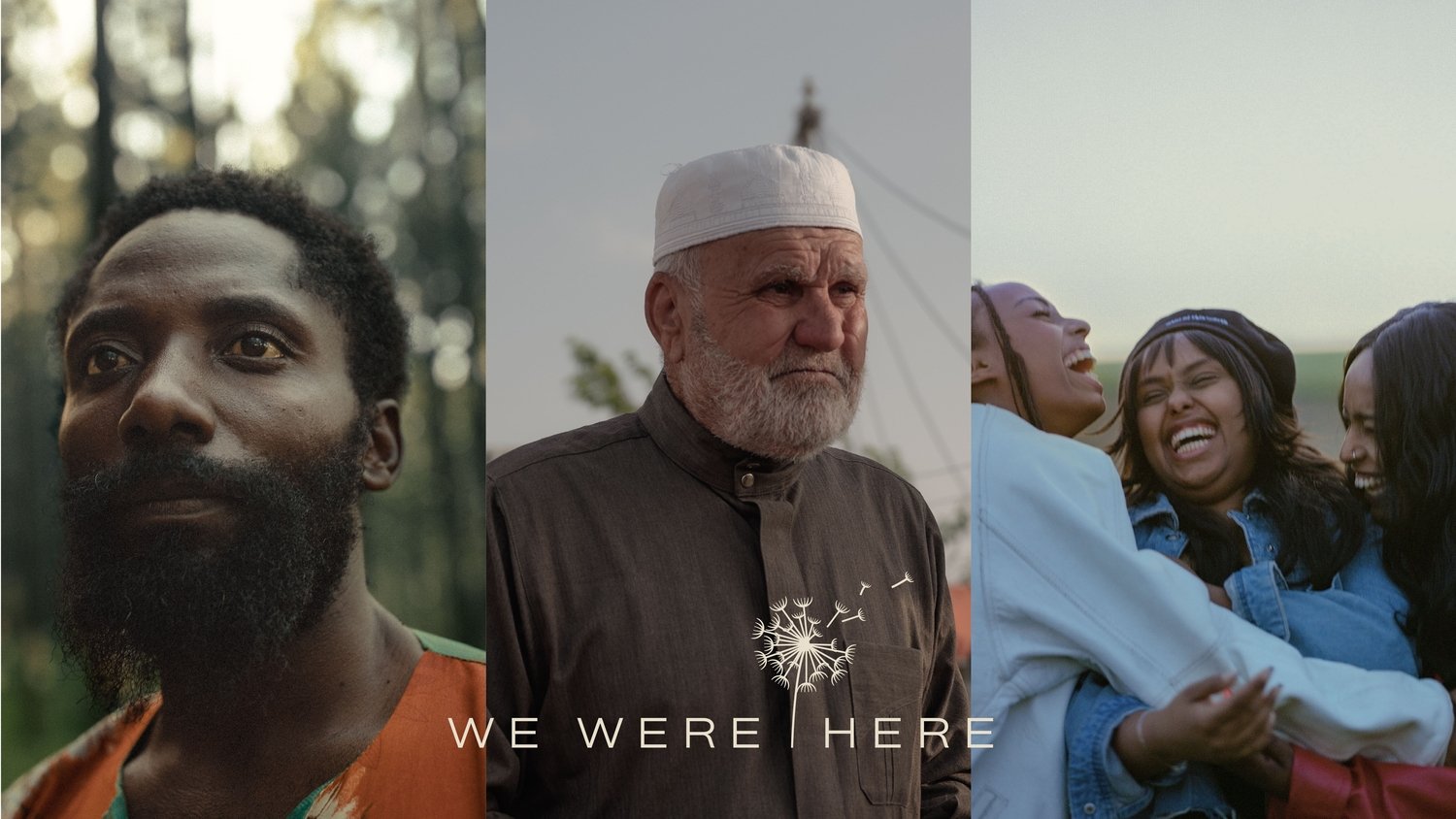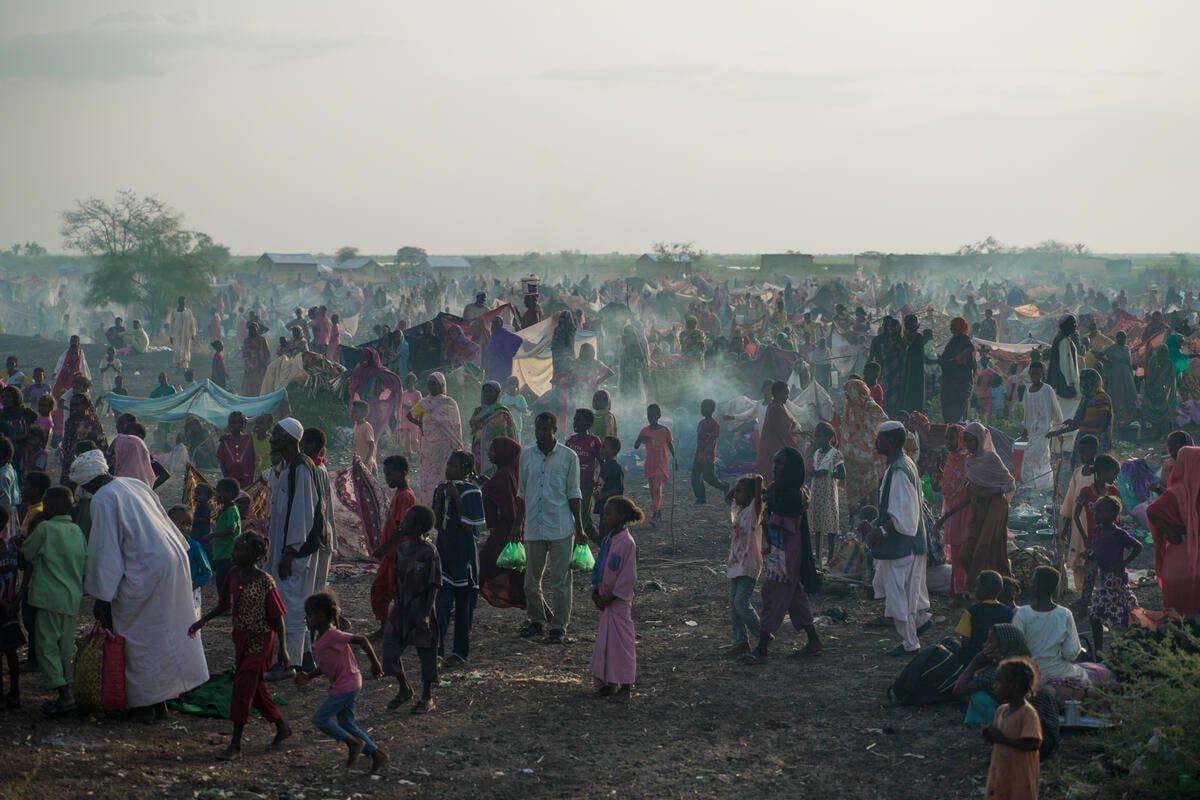In the Central African Republic, Sudanese refugees start new lives alongside host communities
In the Central African Republic, Sudanese refugees start new lives alongside host communities

Fatma and her children had to flee the violence in Nyala, Sudan. They are now living in Korsi, in the Central African Republic city of Birao.
Over half a million people have been displaced across borders since the conflict in Sudan began in April. Most have fled to Egypt and Chad, but around 16,000 have escaped to CAR.
Following long weeks stuck in Am-Dafock, a village on the border, Fatma has now been relocated to Birao with hundreds of other refugees, mostly women and children.
“It was a race against time,” said Bobo Kitoko, who runs the registration operation in Am-Dafock for the UN refugee agency, UNHCR. Moving people away from the border became a necessity, because of the harsh conditions, growing insecurity and high temperatures. The start of the rainy season would also soon make roads impassable for the delivery of humanitarian aid.
Living together
Arriving in UN convoys or independently, more than 1,200 people have so far found shelter in a new district of Birao called Korsi, created specifically for Sudanese refugees by the National Commission for Refugees and UNHCR. The aim is to facilitate inclusion and coexistence by encouraging the refugees to live in a town, alongside the host community.
“The site was allocated by the national, local, and customary authorities, and is in keeping with an historical policy of generosity and hospitality in the CAR,” said UNHCR Representative, Fafa Olivier Attidzah, adding that in Korsi, Sudanese refugees can “find a kind of home, a certain level of stability, and hope”.
Mohamed decided to board the convoy to Korsi to better care for his wife and five children, and to begin rebuilding his shattered life. “Some of my relatives lost their lives,” he said. “We can no longer return to Sudan: we have lost everything.”

Mohamed with four of his children in Korsi. He was a trader back in Sudan, but his shop and all his belongings were burned.
To help the refugees heal, Korsi includes psychosocial infrastructure such as listening places for women and girls, and child-friendly spaces. Life is still tough, said Bakita, a refugee woman participating in a sewing group, but at least they feel safe now.
Some say it is too hard, that there is not enough to eat, but what we were looking for above all was peace and security,” she said.
A ‘welcome’ neighbourhood
Residents and authorities have received the refugees warmly: Korsi even means ”welcome” in the local language.
To strengthen links between the communities, activities and projects have been designed to benefit both refugees and locals.
Residents of Birao and Korsi recently celebrated the Islamic holiday of Eid al-Adha together, while water pumps are being installed for use by everyone, and a new farming area is being set aside outside Korsi so that refugees can grow crops for the local market.

Ali Issa, a Sudanese imam, addresses other Sudanese refugees and members of the local community during a celebration of Eid al-Adha at the Korsi site.
Educational projects are also being developed that will bring refugee and host community children together, offering access to safe, inclusive, quality education for all. "These boys and girls need to continue their education," said Ali Issa, a Sudanese imam in Korsi. “We only speak Arabic and English, so learning French is an opportunity for our children. It is essential that they learn the language to be able to express themselves, and to express our needs.”
The aim is to help Sudan’s refugees rebuild after their former lives were cruelly and suddenly snatched from them by conflict. But starting from scratch does not mean forgetting the past, or those who were unable to leave. Nor does it mean abandoning the dream of return.
“My hope is that young people can return home to rebuild our country,” said the imam. “For my part, I would simply like to see with my own eyes the day when we will be back.”








